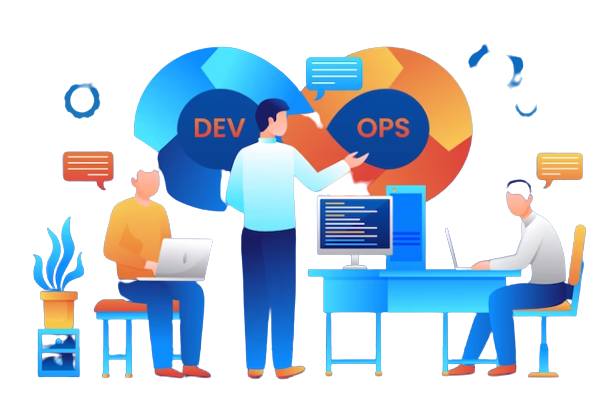Building a culture of continuous learning in DevOps is critical for businesses that want to remain competitive in today’s fast-paced technological landscape. With the right approach, companies can empower their teams to learn, grow, and innovate, leading to increased productivity, improved quality, and better customer outcomes.
In the world of DevOps, continuous learning is a crucial element to remaining competitive and staying ahead of the curve. DevOps is all about streamlining the development process and making it more efficient, and continuous learning is an essential part of achieving this goal. In this blog post, we will explore the best practices and challenges of building a culture of continuous learning in DevOps.
Understanding Continuous Learning in DevOps
Continuous learning is the process of acquiring new knowledge and skills on an ongoing basis. In DevOps, this means staying up-to-date with the latest technologies, tools, and practices to improve the development process continuously. Continuous learning is essential for developers and operations professionals to keep up with the ever-changing landscape of the software industry.

Best Practices for Building a Culture of Continuous Learning in DevOps
- Encourage a Learning Culture: To build a culture of continuous learning, it is essential to foster an environment that values learning. Companies should encourage employees to learn new skills and provide them with the resources and time to do so. This can include training programs, online courses, workshops, and conferences.
- Set Clear Learning Goals: It is essential to set clear learning goals to help employees focus on their learning objectives. Goals should be specific, measurable, achievable, relevant, and time-bound (SMART). This will help employees stay on track and ensure that their learning aligns with the company’s overall objectives.
- Provide Opportunities for Hands-on Learning: Hands-on learning is an effective way to learn new skills and apply them to real-world scenarios. Companies should provide opportunities for employees to work on projects that allow them to apply what they have learned. This can include hackathons, innovation days, and other hands-on learning activities.
- Embrace Technology: Technology can play a significant role in building a culture of continuous learning. Companies should leverage technology to provide employees with access to online learning resources, virtual training, and collaboration tools. This can help employees learn on the go and collaborate with their peers.
- Foster a Learning Community: Building a community of learners can help employees stay motivated and engaged in the learning process. Companies should encourage employees to share their learning experiences and knowledge with their peers. This can include knowledge-sharing sessions, mentorship programs, and other community-building activities.
Challenges of Building a Culture of Continuous Learning in DevOps
Resistance to Change: Resistance to change can be a significant challenge in building a culture of continuous learning. Some employees may be resistant to learning new skills or adopting new technologies. Companies should address this by providing training and resources to help employees overcome their resistance to change.
- Lack of Time: Time can be a significant challenge for employees to devote to learning new skills. Companies should provide employees with the time and resources they need to learn new skills. This can include scheduling learning activities during work hours or providing flexible work hours to accommodate learning activities.
- Lack of Resources: Companies must provide employees with the resources they need to learn new skills. This can include access to training programs, online courses, and workshops. Companies should also provide employees with the tools and technologies they need to apply their new skills to real-world scenarios.
- Lack of Support: Employees need support from their managers and peers to succeed in the learning process. Companies should encourage managers to support employees’ learning efforts and provide them with the resources they need to do so. Companies should also provide opportunities for peer-to-peer learning and knowledge-sharing.
Conclusion
Continuous learning is essential to building a successful DevOps culture. By fostering a culture of continuous learning, companies can stay competitive and stay ahead of the curve in the ever-changing world of technology. However, building a culture of continuous learning in DevOps is not without its challenges.
It is important to address the challenges and implement best practices to ensure a successful transition to a culture of continuous learning in DevOps. By providing opportunities for learning, encouraging collaboration, and promoting experimentation and innovation, companies can overcome these challenges and create a culture of continuous learning that drives business success.
In conclusion, building a culture of continuous learning in DevOps is critical for businesses that want to remain competitive in today’s fast-paced technological landscape. With the right approach, companies can empower their teams to learn, grow, and innovate, leading to increased productivity, improved quality, and better customer outcomes. By embracing a culture of continuous learning, companies can set themselves up for long-term success and growth in the dynamic world of technology.
BACK










